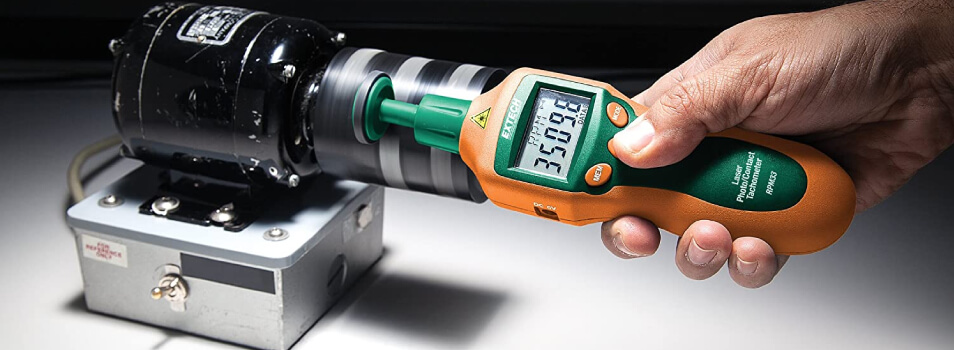
Why is a Tachometer Important for Your Engine's Performance?
Share
When delving into the intricate world of automotive technology, one tool stands out as essential for diagnosing performance: the tachometer. But why is a tachometer important? This indispensable device serves more than just an aesthetic purpose on your dashboard. For tech professionals and car enthusiasts alike, understanding the significance of a tachometer can enhance both driving enjoyment and engine longevity.
A tachometer measures the rotational speed of your engine, allowing you to monitor its performance accurately. This data plays a critical role in maintaining optimal engine efficiency. In this article, we will explore the questioning mechanics behind the tachometer and its vital importance in automotive applications.

Understanding the Function of a Tachometer
The primary function of a tachometer is to display the engine's RPM (revolutions per minute). But its utility extends beyond mere speed tracking; it acts as a guardian of your engine's operational health. By providing real-time feedback on engine speed, you can make informed decisions regarding shifting gears, throttle adjustments, and maintenance timing.
The Measurement Mechanism of a Tachometer
There are different types of tachometers used in various settings, including analog and digital displays. Analog tachometers employ a needle gauge that moves along a scale to indicate RPM. Their simplicity makes them a popular choice among car aficionados. Meanwhile, digital tachometers provide a numerical representation of RPM and often include advanced features like peak hold and data logging, which can be particularly valuable for tech professionals who require precise information.
Applications of the Tachometer
The tachometer is a multifunctional tool utilized not only in automobiles but also across industrial and aviation sectors. For example, in aircraft, the tachometer helps pilot controlensuring optimal engine performance. If you're curious about how a tachometer operates in different settings, check out this article on tachometers in aircraft.
The Role of a Tachometer in Automotive Engineering
In sport applications, the tachometer provides invaluable insights into an engine's power band. Racing enthusiasts utilize tachometers to shift gears at precisely the right moment for maximum acceleration. This phenomenon can also be referred to as the 'power band,' where the engine operates most efficiently. To learn more about power engagement, you can refer to this resource on what does the tachometer tell you.
Why is Proper Tachometer Calibration Important?
Regular calibration of your tachometer is crucial for accurate performance readings. A miscalibrated tachometer can lead to poor performance adjustments and could inadvertently wear down engine components over time. Technicians often check the calibration of the tachometer, particularly during routine maintenance.
Common Issues with Tachometers
Technology is not immune to faults. In the context of a tachometer, issues such as erratic readings, complete failure, and electrical faults can arise. Staying alert to these potential problems can mitigate larger engine issues down the line. If you're interested in knowing where the tachometer sensor is located, you can consult this link: tachometer sensor location.
Tachometers Beyond Automotive
The application of tachometers is extensive. In industrial sectors, they serve to monitor machinery speeds, crucial for efficiency and safety. Additionally, in manufacturing, digital tachometers are often used for accuracy and to prevent equipment breakdown. Understanding this broad use of tachometers can lead to innovations in how they might be employed in future technology.
Choosing the Right Tachometer for Your Needs
When selecting a tachometer, consider the specific applicationbe it for automotive, aviation, or industrial use. Digital tachometers often provide additional features like data logging capabilities for analysis, making them suitable for tech professionals involved in research and development. For more information on the types available, visit this detailed guide on tachometer types.
Conclusion: The Indispensable Role of a Tachometer
In summary, the tachometer is more than just a gauge on a dashboard. It is a crucial instrument that empowers drivers and tech professionals to understand their vehicles' performance in-depthultimately enabling better mechanics for longevity and efficiency. Whether youre a seasoned technician or a curious tech enthusiast, understanding why a tachometer is important can transform your interaction with technology. From cars to aircraft and machinery, the principles for effective tachometer utilization remain the sameprecision is key.

FAQs
-
What is a tachometer?
A tachometer is an instrument used to measure the rotation speed of a shaft or disk, showing the revolutions per minute (RPM). -
How does a tachometer work?
A tachometer can work on various principles, including mechanical, electrical, or optical methods, depending on its design. -
What causes a tachometer to fail?
Common causes of tachometer failure include electrical faults, wear and tear, and incorrect calibration.
